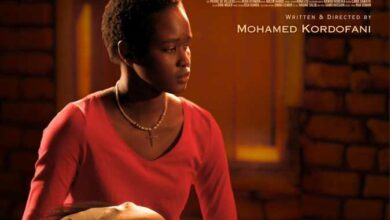The screenings of the 26th Alexandria Film Festival for Mediterranean Countries kicked off yesterday in movie theatres across the city. Until the festival wraps up on 19 September, a total of 35 films from 14 countries bordering the Mediterranean Sea will be screened, providing both the audience and the festival jury with an overview of the regional talents in the "seventh art."
The 10AM screening of “The Building Manager” by Greek director Pericles Hoursoglou did not attract large crowds; mostly jury members and a meager handful of dedicated journalists made it to this revoltingly early screening. The lavish party thrown the night before to celebrate the opening of the festival may also have been to blame for the small audience. The director, producer, screenwriter, and lead actor of “The Building Manager” attended the screening, and the actor sat beside Al-Masry Al-Youm, offering an unprecedented insight while the reel was spinning.
This film, which tells the story of a modern-day Athenian family, opens with the death of the main character’s father but does not dwell on the characters’ grief. The son, Pavlos, in order to help his mother, decides to take over her job as a building manager, meaning that for a year or two he will be in charge of the maintenance of the building she lives in.
“In Greece this is very common,” explained the director patiently. “The tenants of a building will designate a building manager that will operate for a year or two without financial compensation and who will have to make sure that everything works properly.” Poor Pavlos takes office amidst a gory pipe leak and regularly ends up literally covered in waste, insulted by the tenants who produced it and who feel ulcerated by the skyrocketing invoices.
At home the situation is hardly better, with Pavlos having an affair with a 23-year-old girl who sells bougainvilleas. “Most of the actors in this movie, which is my fourth, belong to my family. My wife and my two kids in the film are my wife and kids in reality,” the director added, a wide smile softening his features. He admitted that being both in front of the camera and behind it was a schizophrenic exercise. “We would film the repetitions and then I would watch them and correct whatever needed to be corrected, while trying to detach myself completely from the camera while acting,” he said.
An hour after “The Building Manager” ended, Lebanese director Dima al-Horr’s debut, “Everyday is a Holiday,” began. Starring Hiam Abbass, the famous Palestinian actress who starred in “Lemon Tree” and “The Syrian Bride,” the movie reflects on wandering and loneliness in sublime desert areas. A bus filled with women of every age leaves Beirut to reach the men’s prison, three hours away from the capital. The bus is already well into the rocky hills and dried bushes of the desert when the driver is shot in the forehead. The women abandon the vehicle in a long, dejected line, reach the dusty road and keep walking until they finally split. Three of them, Hiam Abbass included, are given a lift by a young man who transports chickens in his truck.
Visually, the movie is often quite striking, both surreal and of the utmost beauty. One stunning scene occurs when the chicken-filled truck comes to an abrupt halt and most of the iron cages fall onto the ground, freeing some shaken chickens and splashing others onto the windshield. When the women, struggling on high heels in the sweltering heat, try to re-capture the fowl, the driver abandons them. With modesty and reserve, the women share fragments of their unhappy lives and their hatred for their imprisoned husbands. When they finally reach their destination, they find the prison full of corpses.
In spite of its beauty and reflection on loneliness, “Everyday is a Holiday” leaves an unfinished feeling on the tongue. This is also the case with the Egyptian entry, “The Traveler,” starring Omar Sharif, Khaled Nabawi and Cherine Abd al-Nour, which was screened in the afternoon in front of a much larger and more excited audience. Director Ahmed Maher’s film is certainly unique in the Egyptian cinematic landscape, with an interesting three-act structure. As if hidden in the colorful body of a Russian doll, “Everyday is a Holiday” is three movies in one, each unfolding every 20 years in a different location. The narrator, Sharif, explains at the beginning that nothing major happened in his life except for during three days.
On the first day he is a young and frisky gentleman who works for the Telegram agency in Port Said and falls desperately in love with a woman named Nura. He seduces her while pretending to be someone else. On the next day the character is well into his forties, discovering children that are probably his and Nura’s, who passed away years before. When the aesthetics are successful, as they are most of the time, they remind the viewer of Edward Hopper’s paintings.
Alexandria and its windy shores is the location of this story that combines death and wedding festivities with an enchanting breath of madness. On the last day, Omar Sharif is his actual wrinkled yet beautiful self and is confronted by his grandson, a puny and timid young man. They are reunited for only hours.
This movie is certainly a diamond, but unpolished. Maher either went too far or not far enough, but it sheds a new light on what the Egyptian cinema is capable of creating.




